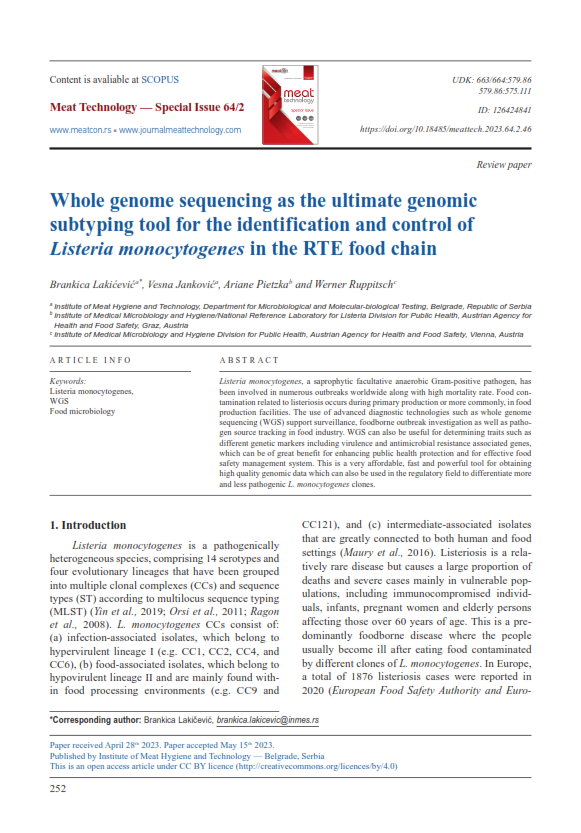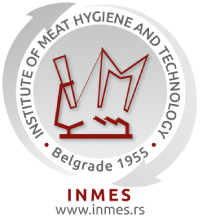Whole Genome Sequencing as the Ultimate Genomic Subtyping Tool for the Identification and Control of Listeria monocytogenes in the RTE Food Chain
Abstract
Listeria monocytogenes, a saprophytic facultative anaerobic Gram-positive pathogen, has been involved in numerous outbreaks worldwide along with high mortality rate. Food contamination related to listeriosis occurs during primary production or more commonly, in food production facilities. The use of advanced diagnostic technologies such as whole genome sequencing (WGS) support surveillance, foodborne outbreak investigation as well as pathogen source tracking in food industry. WGS can also be useful for determining traits such as different genetic markers including virulence and antimicrobial resistance associated genes, which can be of great benefit for enhancing public health protection and for effective food safety management system. This is a very affordable, fast and powerful tool for obtaining high quality genomic data which can also be used in the regulatory field to differentiate more and less pathogenic L. monocytogenes clones.





